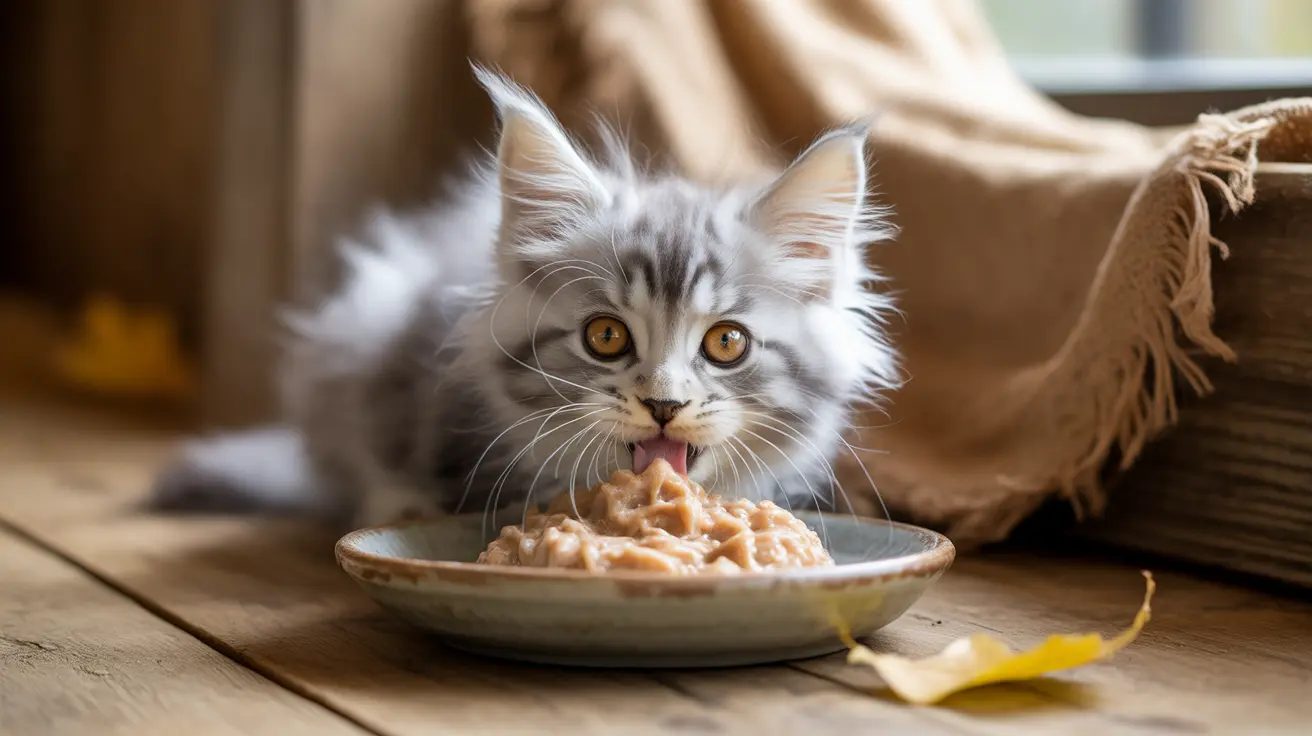The Natural Weaning Timeline
Kittens typically begin the weaning process between 3 and 4 weeks of age. During this time, they start showing interest in solid food while still relying on their mother's milk for primary nutrition. The emergence of their first teeth and increased mobility are key indicators that they're ready to start exploring new food sources.
The active weaning phase occurs between 4 and 6 weeks, when kittens gradually decrease their dependence on milk while increasing their consumption of solid food. By 8 to 10 weeks of age, most kittens will have completely stopped nursing.
Signs Your Kitten Is Ready for Weaning
Physical Development Indicators
- Teeth beginning to emerge
- Steady walking ability
- Increased activity and coordination
- Ability to lap liquids from a shallow dish
Behavioral Changes
- Shows interest in mother's food
- Attempts to paw at or eat solid food
- Increased independence from mother
- More active exploration of surroundings
The Weaning Process: Step by Step
Weeks 3-4: Introduction Phase
Begin by offering a gruel mixture made from kitten formula and high-quality wet kitten food. The consistency should be very liquid at first, gradually becoming thicker as the kitten adjusts.
Weeks 4-6: Transition Phase
As kittens become more comfortable with gruel, gradually increase the food consistency while decreasing the amount of formula. Introduce small amounts of wet kitten food alone, ensuring it's easily digestible.
Weeks 6-8: Final Phase
By this stage, most kittens should be primarily eating solid food. Continue offering formula or mother's milk as needed, but most kittens will naturally decrease their nursing frequency.
Supporting Healthy Weaning
Proper nutrition during weaning is crucial for kitten development. Ensure all food meets AAFCO guidelines for growing kittens, and maintain a clean feeding area with fresh water always available.
Monitor weight gain and energy levels throughout the process. If a kitten seems lethargic or isn't gaining weight appropriately, consult with a veterinarian to adjust the weaning strategy.
Frequently Asked Questions
When do kittens typically start and stop nursing from their mother?
Kittens typically start weaning at 3-4 weeks and completely stop nursing between 8-10 weeks of age. This process is gradual and varies among individual kittens.
What are the signs that a kitten is ready to begin weaning from milk to solid food?
Key signs include the emergence of teeth, steady walking, increased activity, and showing interest in solid food. They should also be able to lap liquids from a shallow dish without difficulty.
How should I gradually transition my kitten from nursing to eating solid food?
Start with a liquid gruel mixture of kitten formula and wet food, gradually increasing the thickness while decreasing formula content. Offer small, frequent meals and ensure fresh water is always available.
Why is it important not to separate kittens from their mother too early during weaning?
Early separation can negatively impact social development, litter box training, and feeding skills. Mother cats teach essential life skills and provide comfort during the transition to solid food.
What are common challenges during kitten weaning, and how can I ensure my kitten stays healthy?
Common challenges include refusing solid food, digestive issues, and slow weight gain. Ensure success by maintaining a gradual transition, monitoring weight gain, and consulting a veterinarian if concerns arise.
Remember that every kitten develops at their own pace. While following general guidelines is important, always observe your kitten's individual needs and adjust the weaning process accordingly.






